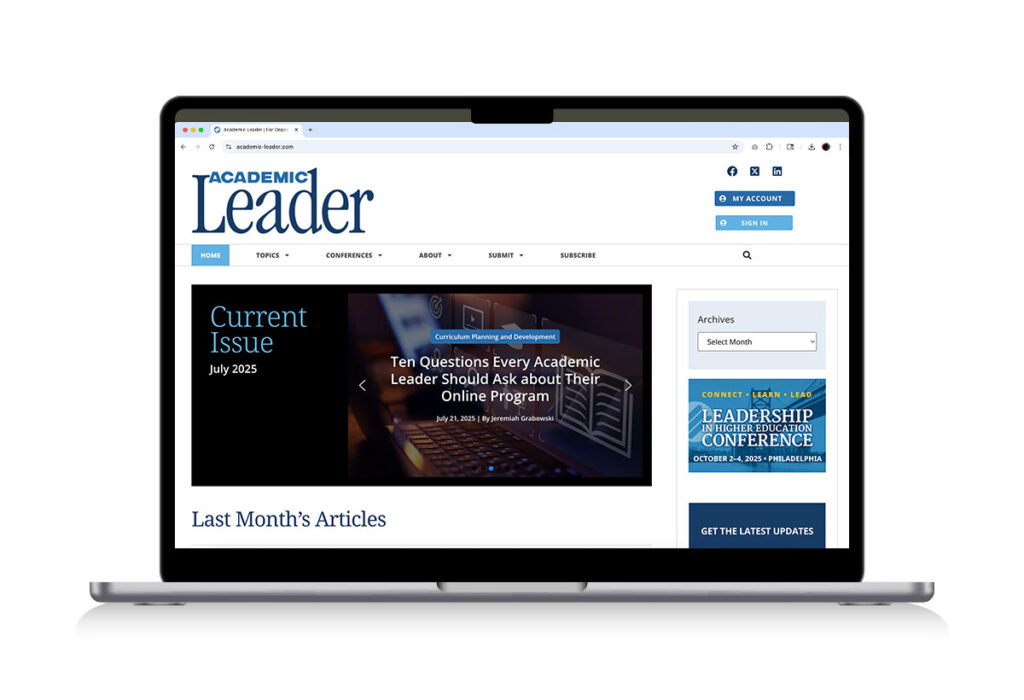Differentiating Instruction in an Online Classroom
Diversity is becoming common in our college classrooms. Not just diversity of race and ethnicity, but diversity of developmental levels and cognitive abilities. With our students’ diverse skills and experiences, faculty members find themselves teaching varied groups of students within one course. This raises the problem of finding a way...
The Failing Student and the Adjunct Professor
Adjunct faculty members indicated they inflated students’ grades in order to help ensure they would receive positive student evaluations, that these students would register for another class they taught. Is the increasing use of adjunct faculty behind grade inflation?
Three Things You Need as a New Dean
Set yourself on the path to academic leadership success with three things you need to equip yourself with in your first days as the new dean.
Take a Vacation – Please! Maintaining Work-Life Balance
Although workshops on academic leadership frequently devote sessions to the topic of “work-life balance,” that phrase is really misleading. It seems to imply that we’re either working or living but never doing both at the same time.
Six Practical Solutions for Racial Tensions on Campus
Almost five years ago, the Department of Education issued its “Dear Colleague” letter on Title IX and sexual violence. The letter was a not-so-subtle reminder that Title IX requires federally funded educational institutions to prevent sexual harassment and violence. After that, the day-to-day work of many higher education attorneys and...
Using Social Media for Learning
The power of social media comes from its ubiquity and its ease of use, making the various social media platforms ideal ways to engage students in learning outside the classroom or learning management system (LMS). This can make learning a much more immediate, 24/7 kind of experience.
Starting a Pedagogy Book Club
One simple way of creating a forum conducive to professional development among faculty is the establishment of a pedagogy book club.
Using Formal Program Review for Continuous Improvement
Drexel University uses a Program Alignment and Review (PAR) process to help ensure relevance, quality, and measurable achievement of its academic programs. It’s a formal review process that includes a self-study, external review, and action plan.
Bringing Online Programs to Small Institutions
Small institutions face their own unique set of challenges when it comes to starting online programs. Here's how to succeed.
Promoting Work-Life Satisfaction
Whether it’s caring for a child or an ailing parent, participating in community activities, or pursuing a hobby, faculty members have and deserve lives beyond work. Formal policies, which vary across disciplines, are important, and academic leaders should actively promote such policies and programs because they can significantly affect faculty...













